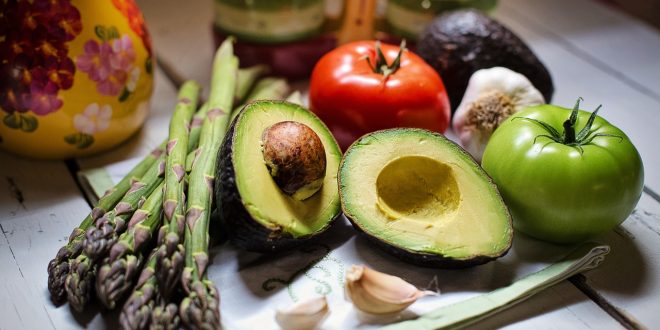By Xin Chang
Avocado is a unique type of fruit because it has many nutrients essential for a healthy diet, such as antioxidants. Unlike most fruits, avocado does not consist primarily of carbohydrates, but rather healthy fats as well as other potent nutrients that are beneficial to our health.
First, let’s see how nutrient dense this fruit is:
- Avocados are an excellent source of monounsaturated fat and vitamin E.
- Avocados contain a number of useful minerals such as iron, copper, and potassium which are very important for our body’s mineral balance. It has more soluble fiber than other fruits and is also a good source of folate, which is a part of B vitamins.
Half of an average sized avocado contains the following nutrition value:
- 113 calories, very low for the amount of nutrition it carries.
- 10 grams fat, about half the amount of that in a cheeseburger
- 6 grams carbohydrates, 5 times less than an average double patty hamburger
- Only 0.2 gram total sugar, 120 times less sugar than a can of coke
- 14 milligrams vitamin K (19 percent DV), used to heal injuries
- 60 milligrams folate (15 percent DV), used for cellular division
- 6 milligrams vitamin C (12 percent DV), used to maintain connective tissue
- 343 milligrams potassium (10 percent DV), an electrolyte that regulates organs
- 2 milligrams pantothenic acid (10 percent DV), which moisturizes and heals skin
- 0.4 milligram vitamin B6 (9 percent DV), which helps maintain a healthy nervous system
- 1.3 milligrams vitamin E (7 percent DV), which protects against toxins and pollutants
- 19.5 milligrams magnesium (6 percent DV), used for activation enzyme reactions
These statistics make avocados one of the top superfoods to have in our diets. Believe it or not, avocados can help with weight loss. Some people think that avocados should be avoided in calorie-restricting diets because of their high-fat content, but in fact, adding avocados in our diets will help us feel more satiated and reduce the desire to eat more while providing great nutrition–high in fiber, low in carbs, and no raise in blood sugar levels that cause sleepiness after meals.
While heart disease is the number 1 cause of death in the human race, this can be prevented with avocado, as it has been successfully shown in studies that avocados have the ability to reduce total cholesterol levels, increase the HDL(good) cholesterol by up to 11%, lower LDL cholesterol by up to 22%, and reduce blood triglycerides by up to 20%.
Avocado helps protect our eyesight with many antioxidants: Lutein and Zeaxanthin to name a couple. They can help reduce the risk of cataracts and macular degeneration. In addition to these benefits, many are left unnamed. By eating avocadoes, we can reap the benefits of this buttery, creamy fruit and avoid suffering from malnutrition at the same time. So let us add more avocados in our lunch bag!
 Tempus Magazine By Students, For Students
Tempus Magazine By Students, For Students 



